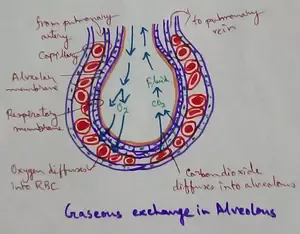Disposal of Liquid Wastes and Solid Wastes
We will discuss here about the disposal of liquid wastes and solid wastes.
What are the ways we can dispose liquid wastes?
If domestic liquid wastes are allowed to flow here and there or to collect in small pits or puddles near the house, the surroundings become dirty. In that dirty water of the puddles, mosquitoes lay eggs and a large number of mosquitoes are produced. They cause malaria and other diseases. So if we waste water, it must be disposed of properly.
All waste water from the houses should be led to pits through covered drains. There are different other ways of disposal of waste water too. Liquid wastes from places like bathroom, kitchen and latrine can be carried to a kitchen garden through drains to irrigate the plants there.
In big cities there is a proper underground sewage disposal
system. Sewage is the name given to the wastes produced by human beings in the
form of faeces and urine. The sewage and waste water are disposed of through
the underground sewage system. Houses in a city mostly have sanitary latrines
or flush latrines which are connected to the system. So faeces and urine
directly go away from the latrine seat.
What are the ways we can dispose solid wastes?
There are many kinds of solid wastes in our houses and surroundings. For example vegetable peels, left-over food, decaying plants and animals, dry leaves, waste paper and plastic etc. These waste produce germs and attracts flies which also carry germs. These germs spread diseases like diarrhoea, dysentery, typhoid, cholera, etc.
These diseases can be prevented by keeping our homes and surroundings clean. The garbage of solid wastes should not be allowed to pile up and decay. Domestic garbage should be collected in dustbins having lids and be dumped at a proper place or in a compost pit.
We can make a compost pit and we should place our daily garbage into the pit.
When the pit is full, it is covered with a layer of soil. The garbage lying therein decays after sometimes and turns into manure.
Animal dung may be used to make bio-gas. Newspapers and paper wastes can be used to make pulp. This pulp is utilised for making fresh paper. Vegetable peels and left over food may be given to the domestic animals to eat. Plastic bags can be utilised to throw away the domestic wastes. Empty bottles, fused bulbs etc. may be utilised to make something decorative or useful.
From Disposal of Liquid Wastes and Solid Wastes to HOME PAGE
Recent Articles
-
Regulation of Respiration | Respiratory Centres | Inspiratory Area |
Oct 14, 25 12:13 AM
Respiratory Centre is the area that controls the rate of respiration and it is observed to be located in medulla oblongata and pons. Respiratory Centre has the following will dispersed components like… -
Explain Transport of Gases | External Respiration | Tissue Respiration
Oct 09, 25 11:35 PM
In humans gaseous exchange is completed in the following ways the steps are - External Respiration or Breathing - Breathing in false taking in of Oxygen and giving out of carbon dioxide in the body. M… -
Kind and Number of Teeth | Location of Teeth in Mouth | Care of Teeth
Sep 11, 25 12:52 AM
Kind and Number of Teeth -
The Gaseous Exchange | Transport of Oxygen | Haldane Effect |
Sep 10, 25 02:44 PM
Oxygen carrying capacity of blood is 20 ml for 100m but 3% of dissolved in plasma and 97% of the oxygen combines with haemoglobin to form a loose reversible Complex called oxyhaemoglobin and is transp… -
Respiratory Volumes and Capacities | Tidal Volume | Dead Space
Sep 10, 25 02:46 AM
Explain respiratory volumes and capacities: Tidal Volume - Tidal volume is the volume of air inspired or expired in relaxed or resting position. Amount of tidal volume is about 500 m and it consists o…






New! Comments
Have your say about what you just read! Leave me a comment in the box below.